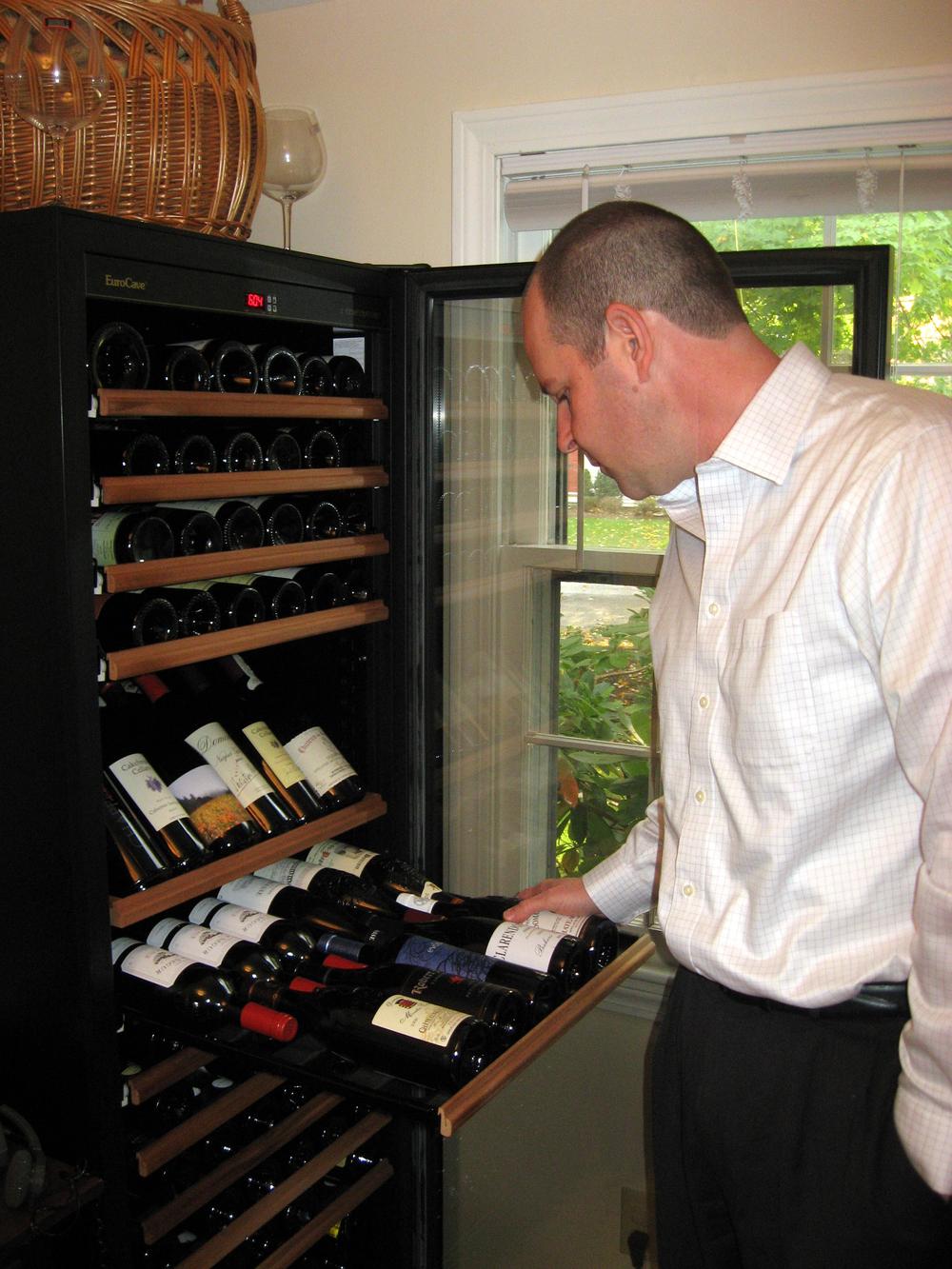Advertisement
Mass. Alcohol Sales Tax Repeal Divides Sellers, Consumers
Resume
Cracking open the Question 1 debate — whether to repeal the state tax on alcohol store sales — is a little bit like cracking open a six-pack. After a while, the arguments start to run into each other.
Take, for example, the argument that says the sales tax on booze is hurting mom-and-pop package stores.
"The border stores near the New Hampshire borders are off on an average of 25 percent," says Steve Rubin, who owns Huntington Wine and Spirits.
You hear the opposite from Vic DiGravio, who heads the Committee Against Repeal of the Alcohol Tax.
"Alcohol sales in the past three months are up over 3 percent, close to 4 percent," DiGravio says.
So I found two people who’ve navigated that fog of arguments. They’ve looked at the issue in the cold light of morning and they come down on different sides, but not the way you’d expect.
The first guy is a consumer. His name is Bob Dwyer. And he loves wine.
Dwyer writes a blog about wine called The Wellesley Wine Press. The same way his blog posts break down the subtle flavors of the latest vintages from northern Italy, he wrote a post breaking down the taxes on alcohol. And he got an aftertaste he did not expect, because he’d been hearing this argument from supporters of the booze tax repeal, like Rubin:
"We already have an excise tax on alcohol. So this new tax is a double tax. It’s a tax on a tax," Rubin says.
Dwyer knew that most states have both an excise tax at the wholesale level — based on the actual amount of alcohol in a sold beverage — and a tax at the retail level. The tax at the retail level is based on the dollar value of what’s sold. And Dwyer assumed that since Massachusetts had gone for decades without taxing store sales, that the excise tax here must be relatively high. He was wrong.
"Massachusetts excise tax rates are medium to low actually," Dwyer says.
He was surprised to find that the excise tax paid on one of his bottles of wine is a dime. So Dwyer doesn’t buy the double tax argument. He thinks if he buys a bottle for $100, the state should get more than just 10 cents.
But he also doesn’t buy an argument from the other side, the one from DiGravio, who also heads the Massachusetts Organization for Addiction Recovery.
"The sales tax on alcohol will raise a $110 million this year to fund vital public health programs like addiction prevention, treatment and recovery programs," DiGravio says.
Dwyer says if it’s really about funding those programs, taxing alcohol retail doesn’t make sense. He says it’s not fair that if he drinks a fine $30 bottle of wine, he pays 10 times more tax than someone who buys $3 Chuck.
Dwyer thinks if Question 1 opponents really wanted to discourage excessive drinking, they’d tax alcohol by volume, not by dollar value.
"I think the right thing to do is increase the excise tax," he says.
So Dwyer is voting for Question 1.
But over at one of the places he buys from, you get a different conclusion.
Raphael Keller-Go is the owner of the new Brookline wine shop Vinodivino. You’d think he’d support the sales tax repeal, just like his counterparts at other stores. But he doesn’t. He just doesn’t agree that alcohol should be exempted from sales tax along with food and basic clothes.
"Is it a necessity or not? Like milk, bread, noodles and rice, sort of like that," Keller-Go says.
Keller-Go realizes that supporting the tax means his customers would keep paying 6.25 percent on top of everything he sells. And that will cut into his profit. But he just doesn’t agree with Dwyer that the excise tax should be increased instead.
"If you increase that, you hurt the poor people!" Keller-Go says.
Because under the excise tax, they’d pay a higher share.
Keller-Go admits the whole thing’s complicated, but after he really thought about it a lot, he’s going to vote against Question 1.
"Honestly how it’s been portrayed everywhere is black and white. Where as it really isn’t. It really isn’t. You really have to open up the book and look at it a little bit," he says.
But in the end, it will have to be a black and white decision. Voters will have to decide which white oval to mark black — the one saying yes to the repeal of the state sales tax on store-bought alcohol, or the one saying no on Question 1.
This program aired on October 25, 2010.
